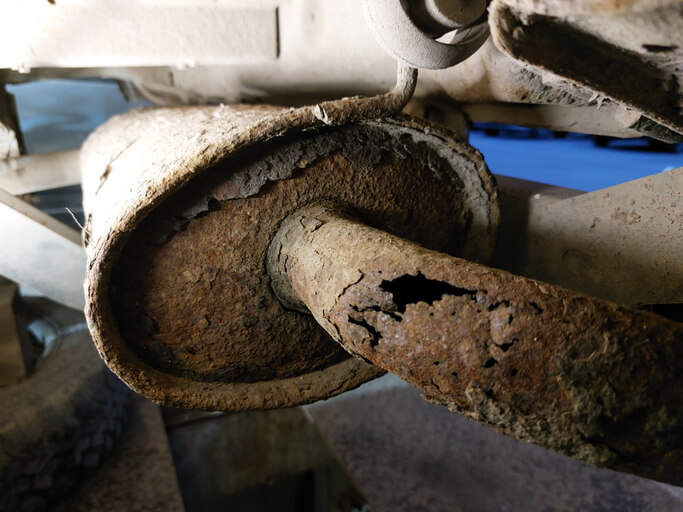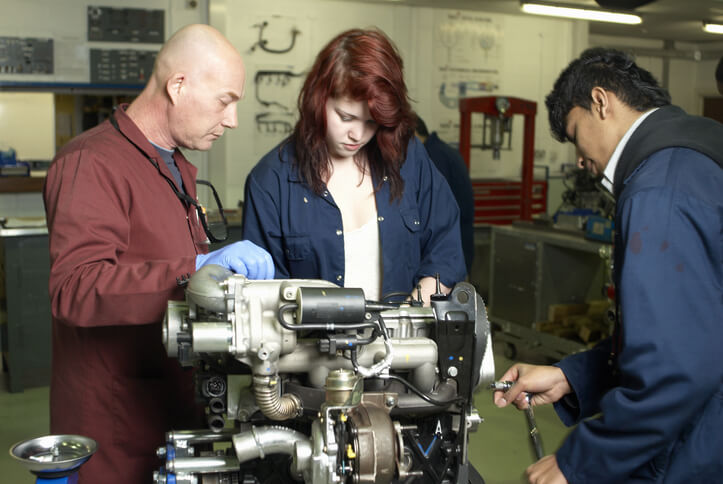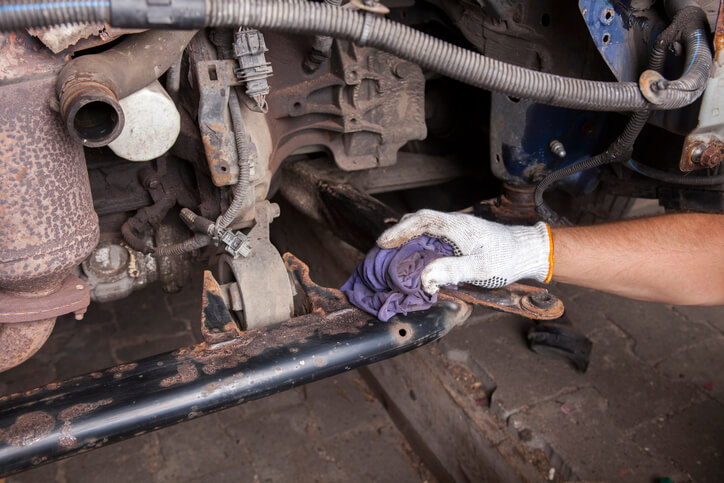Working With Corrosion-Prone Parts: Coastal Challenges for BC Mechanics
Coastal beauty comes with a price for vehicles. In British Columbia, where ocean air and wet winters are the norm, auto mechanics face a common yet frustrating challenge: corrosion. Rust doesn’t just affect a car’s appearance; it weakens structural components, complicates repairs, and shortens vehicle life.
At ATC Surrey, students in our automotive training program learn how to identify, manage, and prevent corrosion-related issues specific to coastal regions. If you’re pursuing a career in BC’s automotive industry, here’s what you need to know about working with corrosion-prone parts and how the right training makes all the difference.
Why Corrosion Is a Big Deal in Coastal BC
Corrosion is caused by the chemical reaction between metal and moisture, especially when salt is involved. In coastal BC, vehicles are exposed to salty sea air, rainy weather, and winter road salts. Over time, this combination accelerates oxidation and leads to rust buildup on:
- Brake lines and calipers
- Exhaust systems
- Suspension components
- Frame rails
- Fuel tanks and lines
- Undercarriage hardware
Even vehicles that appear fine on the surface may have hidden rust beneath. That’s why auto mechanics working in this region must be vigilant and thorough in every inspection.

What Future Technicians Need to Watch For
In auto mechanic school, students learn to look beyond the obvious. Rust and corrosion aren’t always visible until parts are removed or damaged.
- Key warning signs include:
- Flaky or bubbling paint on the undercarriage
- Leaks or cracks in brake or fuel lines
- Noise or vibration from corroded suspension parts
- Rusted bolts or mounts that break during repairs
- Exhaust leaks from rusted-out pipes or mufflers
Failure to address these issues early can lead to safety hazards, system failures, or even vehicle write-offs.
Real-World Repair Skills You’ll Use in the Shop
At ATC Surrey, our automotive training includes hands-on practice with corroded vehicles and parts. Students develop real-world skills, such as:
- Removing rusted bolts without damaging components
- Using penetrating oils, heat, and proper tools for stubborn hardware
- Replacing brake and fuel lines safely and cleanly
- Identifying when a part can be salvaged versus when it must be replaced
- Applying rust-inhibiting treatments after repairs
Instructors at our auto mechanic school also teach safe torch and grinder techniques, essential for working with corroded suspension and exhaust systems.

Prevention: An Auto Mechanic’s Best Tool
While some corrosion is unavoidable, technicians can help customers prevent future issues with the right advice. Through automotive training, students learn how to:
- Recommend undercoating or rustproofing services
- Inspect and clean wheel wells, frames, and drainage points
- Suggest regular undercarriage washes, especially after winter driving
- Apply anti-seize compound during reassembly to ease future work
Being proactive doesn’t just reduce corrosion; it builds trust with customers who depend on your guidance to keep their vehicles roadworthy longer.
The ATC Advantage for Coastal Technicians
Located in the heart of Surrey, ATC offers training that reflects the real environmental conditions mechanics face across BC. Auto mechanic students work on a range of vehicles, many of which already show signs of weather exposure, giving them first-hand experience with the corrosion challenges they’ll see on the job.
By the time they graduate, students have the confidence to:
- Tackle corroded systems with precision and care
- Communicate clearly with clients about rust-related safety issues
- Prevent unnecessary damage during disassembly
- Perform repairs that last, even in wet, salty conditions
Are you interested in comprehensive automotive training?
Contact ATC Surrey for more information.


